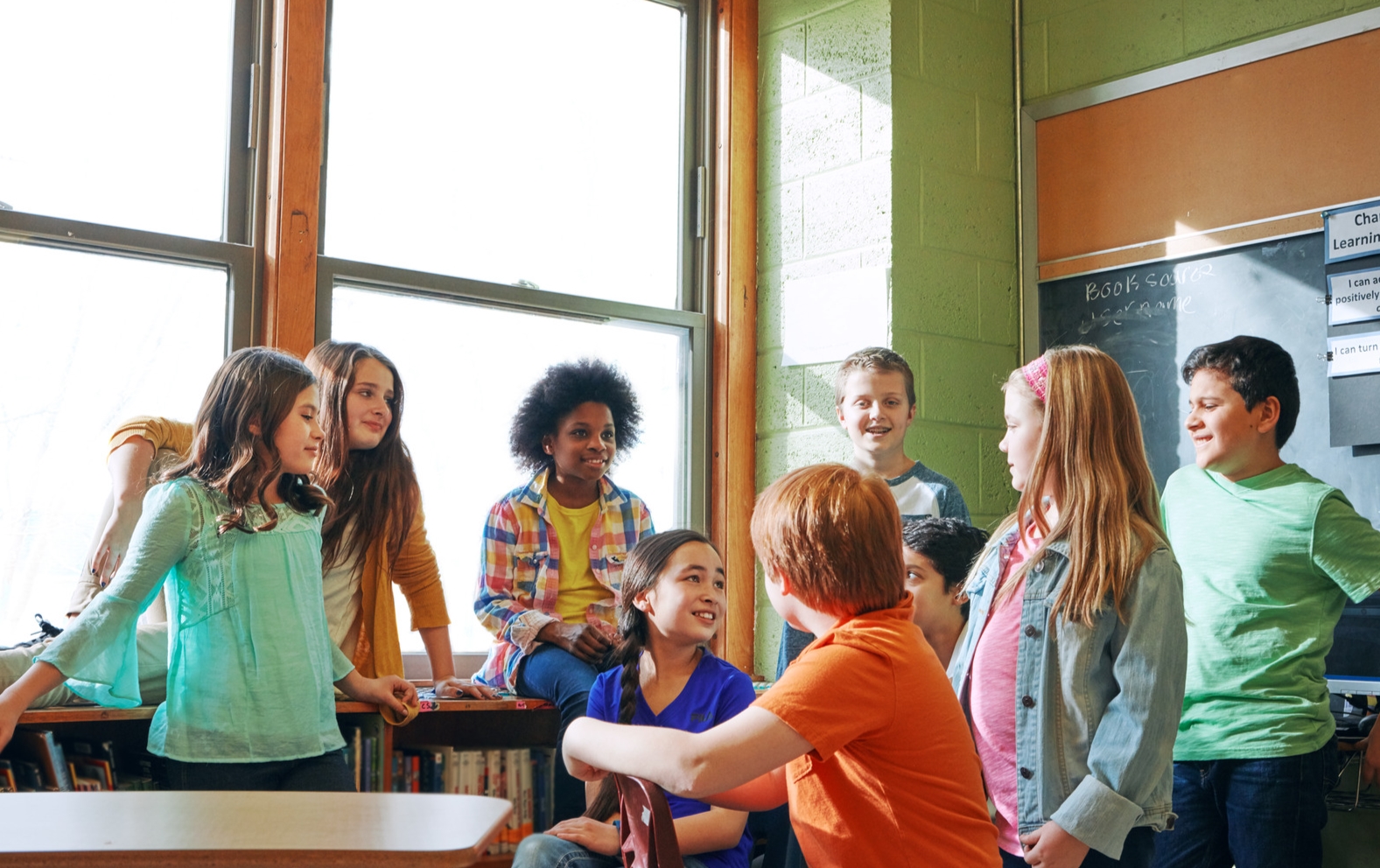An Individualized Education Program (IEP) is a personalized plan developed for students with special educational needs, including those with autism spectrum disorder (ASD). The goals outlined in an IEP are tailored to address specific challenges and promote learning and development in various domains, including social skills.
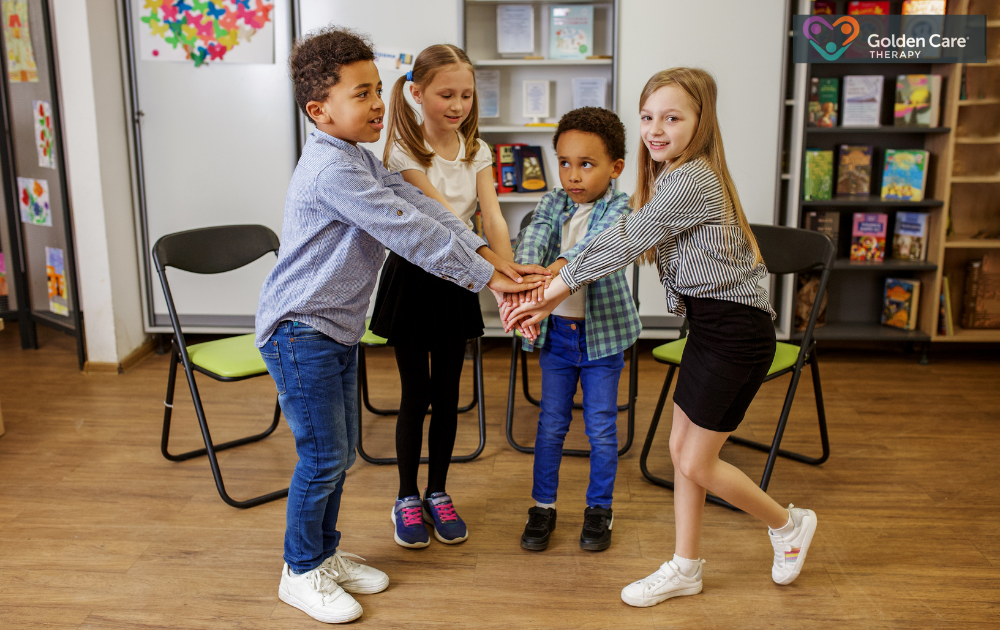
Key Components of Social Skills Development in Autism
Social skills development among autistic individuals is made of various key components to make it successful. These are as follows:
Social Communication Skills
Social communication involves the ability to interact and communicate effectively with others. Goals in this area may focus on improving conversational turn-taking, understanding nonverbal cues (like facial expressions and body language), and using appropriate language in social contexts.
Research studies emphasize the importance of targeted interventions that integrate speech-language therapy and behavioral approaches to enhance social communication skills.
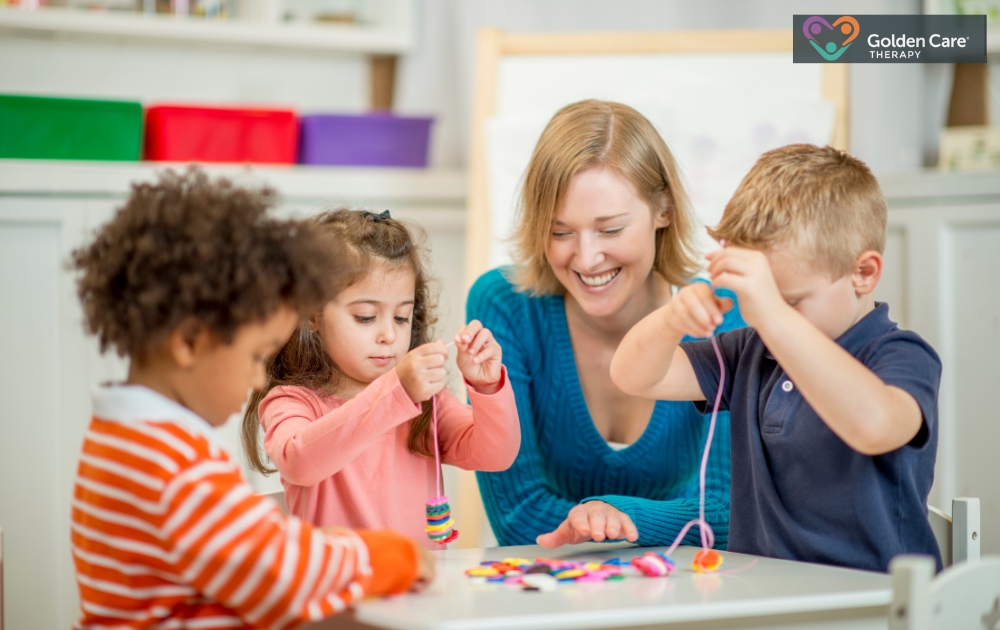
Peer Interaction and Play Skills
Developing skills for interacting with peers and engaging in collaborative play is crucial for social development. IEP goals might include increasing opportunities for structured play, teaching skills for initiating and maintaining friendships, and fostering cooperative play behaviors.
Studies highlight the benefits of structured play interventions and peer-mediated strategies in improving social interactions among children with autism.
Emotional Regulation and Understanding
Individuals with autism often face challenges in understanding and regulating their emotions. IEP goals can target identifying emotions in oneself and others, using strategies to manage emotions (like deep breathing or taking breaks), and recognizing social situations that may trigger emotional responses.
Evidence suggests that interventions focusing on emotion recognition and regulation can significantly improve social skills and adaptive behavior in children and adolescents with autism.
Social Problem-Solving Skills
Problem-solving skills are essential for navigating social situations effectively. IEP goals may include teaching steps of problem-solving (identifying the problem, generating solutions, evaluating outcomes) and applying these skills to real-life social scenarios. Research indicates that teaching explicit problem-solving strategies can enhance social competence and reduce social difficulties in individuals with autism.
Structured Social Skills Groups
Implementing structured social skills groups within the school setting can be beneficial. These groups typically involve small-group sessions led by a trained facilitator or therapist. They provide opportunities for practicing social skills in a supportive environment, receiving feedback, and learning from peers.
Research underscores the effectiveness of structured social skills groups in improving social communication and peer interactions among children and adolescents with autism.
Community Integration and Generalization
It’s essential for individuals with autism to generalize social skills beyond the school environment into community settings. IEP goals should include opportunities for community outings, participation in extracurricular activities, and volunteer experiences that encourage social interaction and application of learned skills. There are studies that suggest that promoting community integration enhances social inclusion and improves adaptive behaviors in individuals with autism.
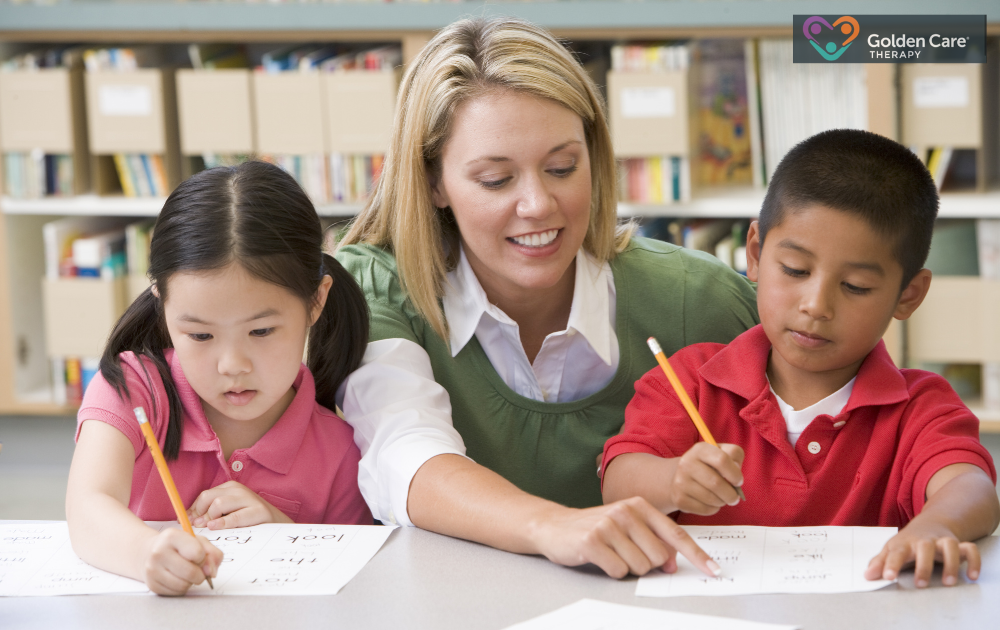
Strategies for Implementing IEP Goals
Implementing Individualized Education Program (IEP) goals requires strategic planning and thoughtful execution to ensure that each student’s unique needs are met effectively. Educators and support staff collaborate closely with parents and specialists to tailor interventions that foster academic progress, social development, and overall academic success.
These strategies are designed to provide structured support and personalized attention, aiming to empower students with the tools they need to thrive academically and socially. These are as follows:
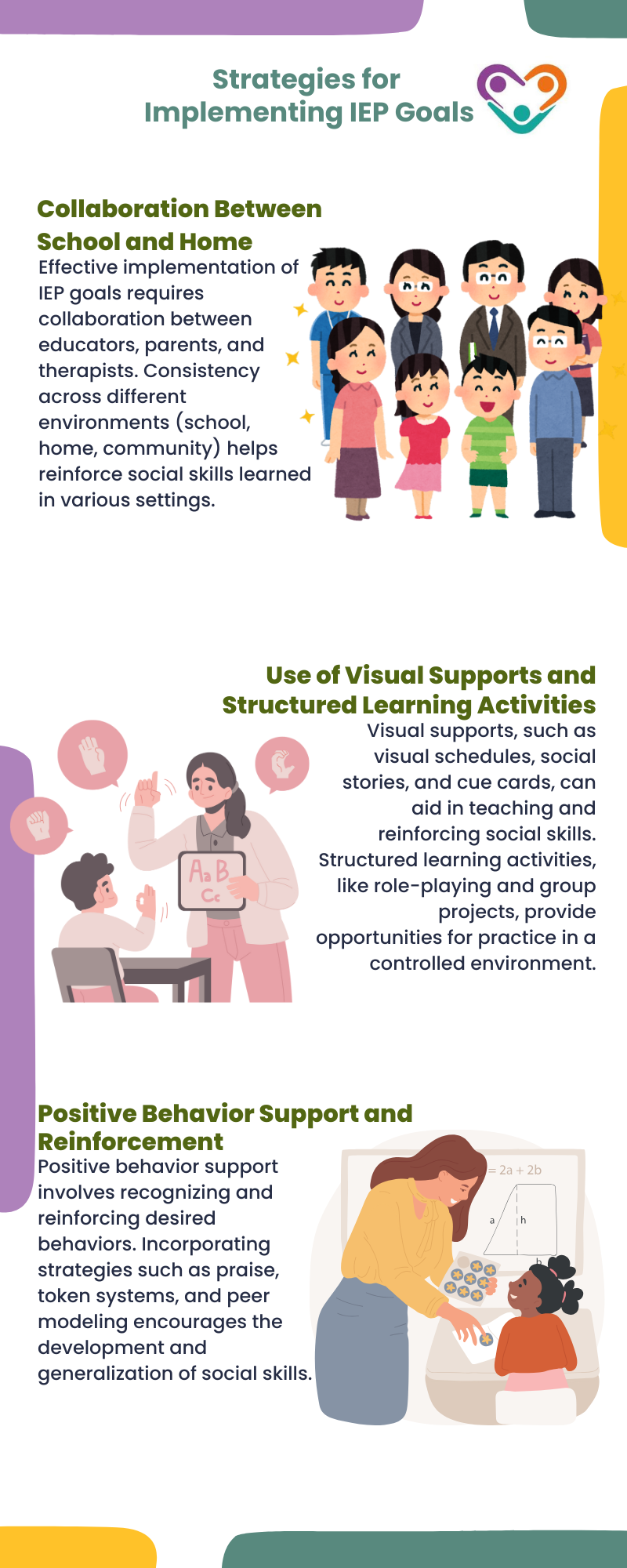
Monitoring Progress and Adjusting Goals
Regular monitoring of progress toward IEP goals is essential. Data collection methods, such as behavior logs and progress reports, help track improvements and identify areas needing further support.
Goals should be adjusted based on ongoing assessments and feedback from parents, educators, and therapists. Regular communication between educators, parents, and therapists is vital for monitoring progress and making necessary adjustments to IEP goals. Data-driven decision-making ensures that interventions are effective and responsive to the individual’s evolving needs.
Periodic review meetings provide opportunities to discuss progress, celebrate achievements, and set new goals aligned with developmental milestones.
The Key Takeaway
Developing effective IEP goals for autism social skills involves a comprehensive approach that addresses specific challenges in social communication, peer interaction, emotional regulation, and problem-solving.
By integrating evidence-based practices and fostering collaboration among stakeholders, educators can support meaningful progress in social development for individuals on the autism spectrum. If you’re looking for top rated ABA therapy in New Jersey, Indiana, Georgia, and New York, Golden Care is a trusted provider offering tailored support to help achieve these goals. Contact us today to learn more or to book a consultation.
Sources:
https://www.autismgrownup.com/blogs/1/social-skills-iep-goal-ideas
https://getgoally.com/blog/social-emotional-iep-goals-for-autism

